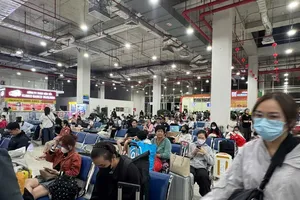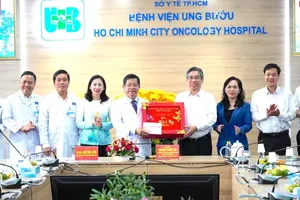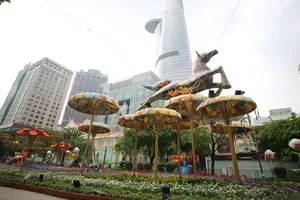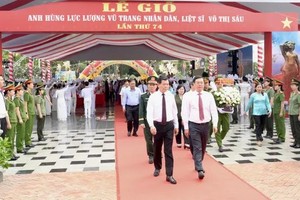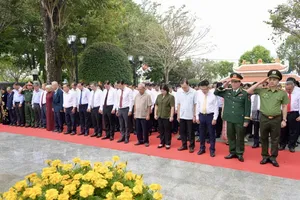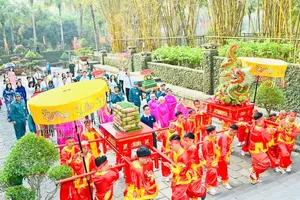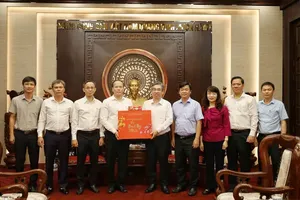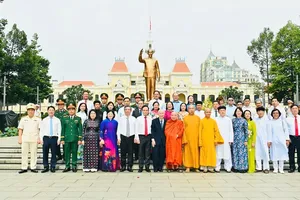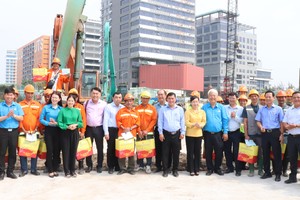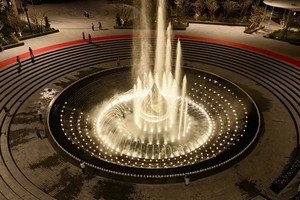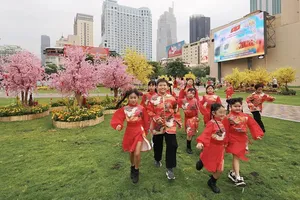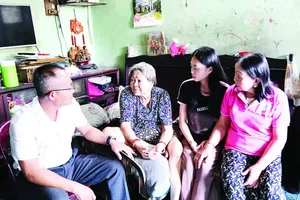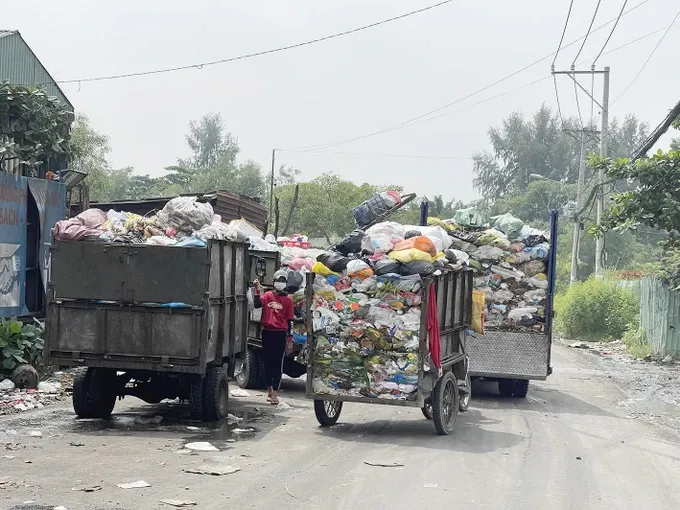
Being a private waste collector in Ward 10 of District 3 for nearly 30 years, Le Van Ut sadly shared that despite facing a hazardous working environment, he is not offered any contract, social insurance, or medical insurance. His monthly income is only about VND4 million (US$165), resulting in continuous financial shortage.
In HCMC at present, each household pays VND45,000-60,000 ($1.86-2.48) per month for waste collection. Most of this amount comes to private management units, whose employees receive rather low salary. Hence, they have to pick recyclable garbage to resell for extra income.
Director Pham Van Khanh of District 5 Environment Cooperative commented that the life of private waste collectors is financially troublesome even though they are important links for environment cleaning.
This stems from an outdated garbage collection rate of VND464 ($0.019) a kilo, meaning not enough money for private units in the field to pay their workers. A lack of proper policies to help private waste collection units join a cooperative and too many requirements (contributing from VND500,000 - 2 million or $20.67 – 82.68 and a monthly fee of 5 percent of their revenue) also discourage them.
Moreover, 65-85 percent of waste collectors are from other provinces, meaning they rarely receive aid from functional agencies or the local authorities. Meanwhile, it is hard to reach their employers for necessary dialogues to provide timely help. The HCMC Department of Natural Resources and Environment and certain local authorities have tried to work with a number of private garbage collection units for restructuring but without much success.
Experts in the field commented that supporting policies will prove their effectiveness as long as private waste collection organizations choose a suitable operation model and observe the State’s regulations on labor use. The city should set a deadline for this, and any uncooperative units must stop working. This will ensure laborer rights and create a strong foundation for renovating waste collection means.
“It is impossible to say a city is eco-friendly and with civilized lifestyle when there are still a lot of outdated waste collection vehicles running around and spreading foul smell everywhere. More importantly, as these collectors do not use separate sections for each kind of garbage, city residents feel it is meaningless for them to sort waste at source”, said an expert.
The HCMC Department of Natural Resources and Environment reported that the hesitation of many private garbage collection units in switching to new operation models comes from their anxiety in following more regulations like tax declaration, report preparation, insurance policy implementation for their employees.
What is more, following these new models means they are now a legal entity and have to pay double for any administrative violations. That is not to mention private waste collection activities in many places are spontaneous and have been transferred through many generations of owners, so it is extremely challenging to persuade them to change.
Statistics from the HCMC Department of Natural Resources and Environment reveal that in the city:
- There are about 4,200 private waste collectors.
- There are in total 6,575 waste collection vehicles, 4,000 of which meet the standards (accounting for 61 percent).
- Around 1,664 vehicles are in need of upgrading, including 1,011 bins of 660l and 653 trucks.
- The need for loans from the Environmental Protection Fund is about VND204 billion ($8.42 million).
